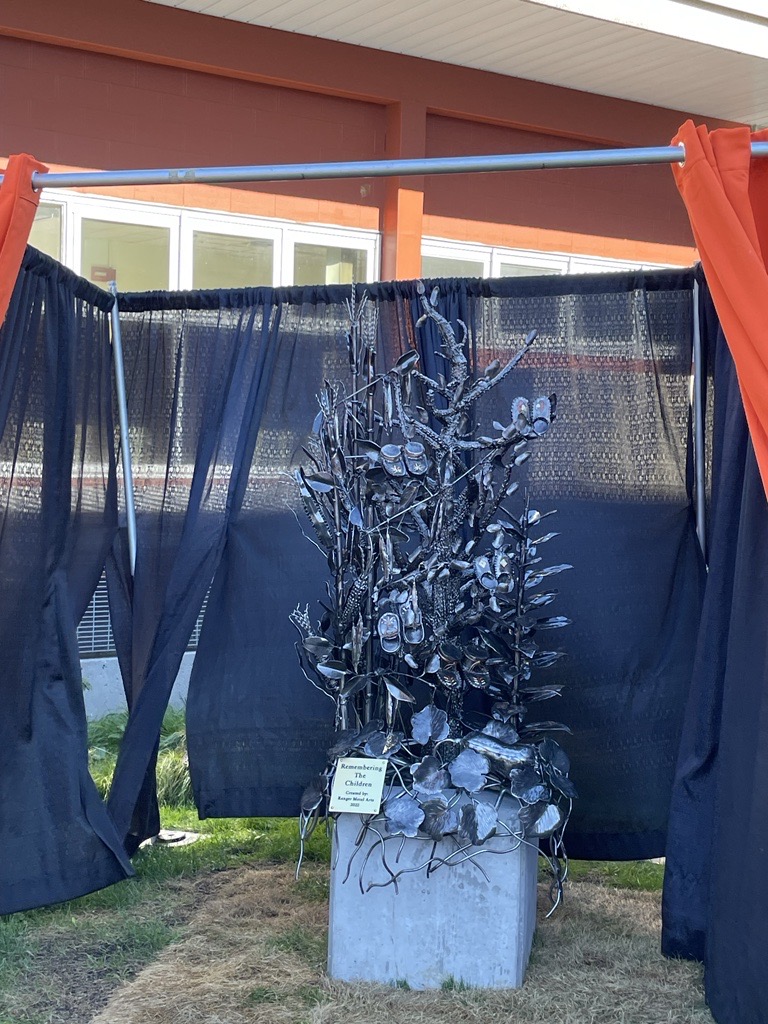Last fall, Shelia Grantham and Kerry Potts began working as Indigenous Pedagogy and Curriculum Consultants at Algonquin College in the Learning and Teaching Services (LTS) department in Ottawa, Ontario. The goal of LTS is to foster a culture of teaching innovation and excellence and build relationships with faculty, academic schools and Applied Research that support strategic collaboration, pedagogical and technological exploration, and ideas sharing. As part of their mandate, Grantham and Potts, in their roles with LTS will further advance the TRC’s Calls to Action relating to Indigenous education.
Since then, connections, relationships and partnerships have been created with local communities, organizations, student services, schools, deans, chairs, faculty, professors, instructors, and students, as well as other post-secondary institutions throughout Canada.
“There are different ways the college needs to be interconnected that’s it’s not,” Potts said. “We are looking at connecting the Mamidosewan Centre (for Indigenous students) with the Office of Truth and Reconciliation, and the Office of Applied Research with the Critical Pedagogy group to build lines of communication and open up possibilities for collaboration that may seem unconventional.” Indigenizing means “shaking things up a bit in terms of the systems that are in place.” She said people she and Grantham have met with are supportive and open to these ideas.
Grantham and Potts have conducted professional development sessions for faculty discussing Indigenous student experiences, they have spoken about how to talk about residential schools in classrooms. They have shared research ethics that is grounded in Indigenous community practice, and they have also shared how to integrate Indigenous resources into courses and encourage professors to create Indigenous-focused learning outcomes. Another session is planned for this fall related to treaty responsibility and land-based pedagogy.
Since they began their work, they have spoken to many teaching and non-teaching faculty and staff throughout the College. They are currently working with various faculty to redesign the Aboriginal Studies program, Bachelor’s of Child and Youth program, the Indigenous Pre-Apprenticeship Culinary program and the Forestry program, by incorporating Indigenous content within the curriculum, exploring possibilities for integrating land-based pedagogy and engaging Indigenous communities, and aligning program and course learning outcomes to Indigenous values and priorities.
In addition, Grantham and Potts conduct regular learning sessions open to all employees on campus. This includes the monthly Tea, Teaching and Bannock gatherings, professional development sessions to build cultural safety in classrooms and expand knowledge on Indigenous topics and organize guest speakers and panels. They also provide online training like the Indigenous Teaching & Learning Bundles on BrightSpace, and by providing support and learning during National Day for Truth and Reconciliation, as well as Indigenous History Month.
“Because our roles are focused on supporting teachers, we want to encourage culturally safe ways to present material that is Indigenous-focused and share new ways of engaging students in a holistic way of teaching embodied by the Medicine Wheel,” said Potts. “The training you are doing has to disrupt people enough to make them reflect on the need to change what and how they are teaching. Braiding Indigenous models of education and Indigenous knowledges into our work enriches learning for all people and creates space for diverse ways of thinking and learning that have been overlooked.”
To learn more visit algonquincollege.com/tri

On Sept. 30, 2022, The College, along with the Office of Truth and Reconciliation, decided to remember the children by commissioning a piece of art, a permanent reminder to remain on display in Ishkodewan. It will serve as a gathering place for reflection and spark conversation in learning more about this disturbing part of our history. Local metal artist Barry Ranger created a metal sculpture that captures many traditional Indigenous elements, including nurturing plants like corn, beans, squash and the spiritual and healing plant of tobacco, interwoven together with empty children’s moccasins, to remind us of the children who were failed by the residential school system. It is a stark reminder of the children who never made it home from those schools and those who still live with that tragic legacy.